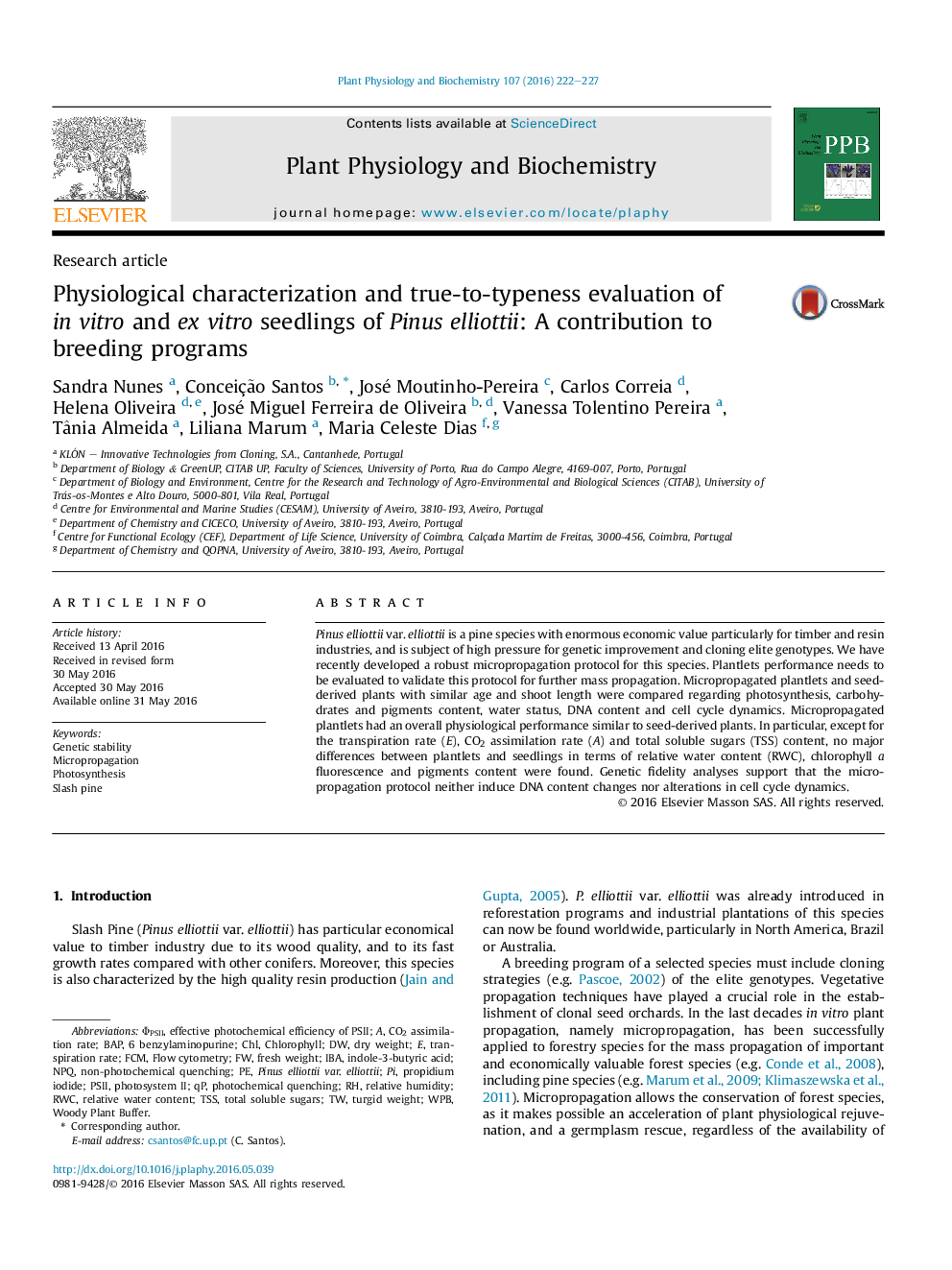| Article ID | Journal | Published Year | Pages | File Type |
|---|---|---|---|---|
| 2014667 | Plant Physiology and Biochemistry | 2016 | 6 Pages |
•Pinus elliotii micropropagated plantlets showed 100% survival rates.•P. elliottii plantlets had similar physiological performance regarding seedlings.•A similar DNA content and DNA-ploidy was found in seedlings and plantlets.•Physiology and ploidy data contribute to breeding programs using these plantlets.
Pinus elliottii var. elliottii is a pine species with enormous economic value particularly for timber and resin industries, and is subject of high pressure for genetic improvement and cloning elite genotypes. We have recently developed a robust micropropagation protocol for this species. Plantlets performance needs to be evaluated to validate this protocol for further mass propagation. Micropropagated plantlets and seed-derived plants with similar age and shoot length were compared regarding photosynthesis, carbohydrates and pigments content, water status, DNA content and cell cycle dynamics. Micropropagated plantlets had an overall physiological performance similar to seed-derived plants. In particular, except for the transpiration rate (E), CO2 assimilation rate (A) and total soluble sugars (TSS) content, no major differences between plantlets and seedlings in terms of relative water content (RWC), chlorophyll a fluorescence and pigments content were found. Genetic fidelity analyses support that the micropropagation protocol neither induce DNA content changes nor alterations in cell cycle dynamics.
